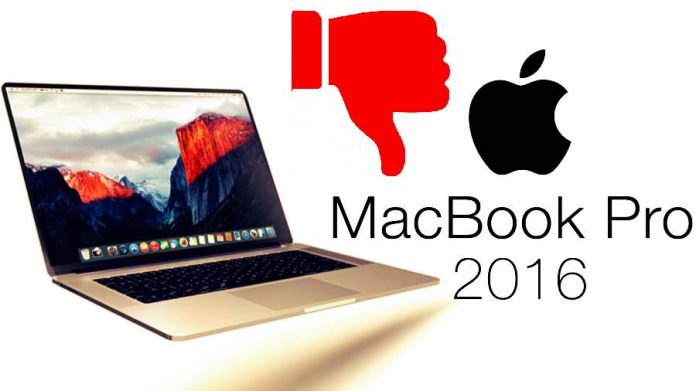
A review published yesterday by Jerry Beilinson, a journalist at Consumer Reports, revealed that the latest MacBook Pro would not receive a recommendation from the website, citing battery problems and other details that appeared while testing.
Consumer Reports is an independent and non-profit organization that publishes articles on a wide variety of products. Their goal is to provide unbiased and thorough information on consumer goods for the potential buyer.
The latest MacBook Pro model came out earlier in October and received mixed reviews. Enthusiasts praise its new design and added functions, while detractors primarily complain about connectivity and price.
Consumer Reports thoroughly tested three Apple MacBook models
We can't recommend the new MacBooks – see what our testing discovered.https://t.co/V3NGGgNNqc
— Consumer Reports (@ConsumerReports) December 23, 2016
Though the laptops fared well on display and performance, according to the report, battery life significantly varied from one model to another, which prompted them not to give a final recommendation.
Specs provided by Apple state that the MacBook Pro should operate for an approximate of ten hours with a full charge, but most users have only received up to four hours of battery life before the laptop completely dries.
Consumer Reports tested two 13-inch models (with and without the Touch Bar), and a 15-inch variant. Researchers bought the computers at retail stores to ensure that their testing would be consistent with consumer experience.
Buy a MacBook if you must but stay near a power outlet
Initial tests on the 13-inch model with the Touch Bar revealed a battery life of 16 hours on the first trial, 12.75 hours on the second, and 3.75 hours on the third. Such an astounding difference logically affects usage and raises questions regarding quality for such a high-priced laptop.
The 13-inch model without the Touch Bar functioned for 19.5 hours on the first run but went down to 4.5 hours in the second. The 15-inch variant clocked 18.5 hours of battery life and then performed for only 8 hours.
Consumer Reports reiterated the problem is exclusive to these MacBooks, adding that older models have yielded better results and received following recommendations, many of them lasting longer than their advertised battery life with a full charge.
How did Consumer Reports test MacBooks’ battery life?
The company probes performance by downloading ten websites sequentially with a fully charged battery. They set the computer screen to remain on at all times and adjust brightness to 100 units. The machines handle the workload through WiFi.
Consumer Reports started the trials with the pre-installed iOS version and later repeated them after updating to Sierra 10.12.2. They also tried both Safari and Chrome to see if it made any difference.
The company shared its final reports with Apple and reached out to them for comment but received no formal response. The Cupertino giant said it would issue a statement after they studied the problem. For now, Apple said customers should contact Applecare if their MacBooks present the problem.
Source: Consumer Reports










